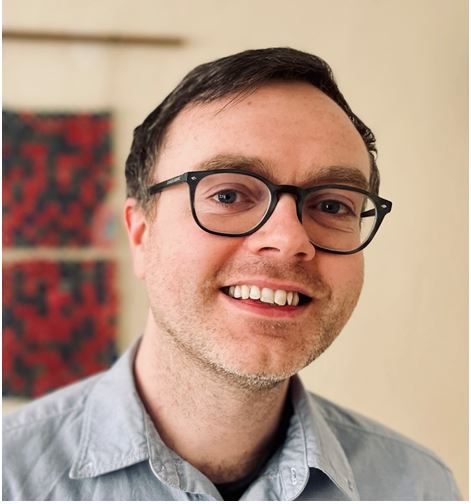Science and Mathematics
Physics Colloquium: Liquid Crystal Physics in the Mammalian Meiotic Spindle
January 24, 2023 at 3:30pm – 5:00pm EST
Physics Building, 202
This event has already occurred. The information may no longer be valid.

The Department of Physics is pleased to welcome Dr. Colm Kelleher for an in-person colloquium. Kelleher is a biophysicist working in Dan Needleman’s Lab at Harvard University, where he uses quantitative microscopy to study meiotic and mitotic spindles. Colm received a Ph.D. at the Center for Soft Matter Research at New York University. This presentation is part of the faculty search for an Assistant Professor of Soft Matter and/or Biological Physics.
Abstract:
Cell division is a very common process in biology — in an adult human, about 1 million divisions take place every second. During division, a large organelle called the spindle moves micron-sized chromosomes over distances of tens of microns*. From a molecular perspective, the spindle is quite well-characterized: we now have an essentially complete “parts list” of the biomolecules that make it up. As a mechanical object, however, the spindle remains very poorly understood. For instance, the physical principles governing spindle assembly, size and shape regulation, and force production are unknown.
In this talk, I will argue that tools and techniques from soft matter physics can help solve these problems. I will discuss how polarization microscopy can be used to non-invasively measure the internal structure and dynamics of spindles in living mammalian oocytes (immature egg cells). I will present a simple continuum model, based on active liquid crystal physics, that captures several important aspects of the internal structure and dynamics of oocyte spindles, and demonstrate how this model can be used to infer material properties related to force transmission — the first time any such properties have been measured in a living spindle. In future, our techniques may facilitate real-time, quantitative monitoring of chromosome segregation in IVF clinics, and so aid in selecting viable oocytes for fertilization and implantation.
*in typical metazoan and plant cells
To join the seminar remotely, please email Kevin Garvey for the Zoom information.
This event was first published on January 5, 2023 and last updated on January 11, 2023.
Event Details
- Category
- Science and Mathematics
- Type
- Talks
- Region
- Campus
- Open to
- Current Students,
- Faculty
- Contact
- Kevin Garvey
kjgarvey@syr.edu
315-443-5960
- Accessibility
- Contact Kevin Garvey to request accommodations
